Beverly Hills was chosen as the location for the brand’s first store, designed as a “private residence for modern monarchs.”
Sterling and the Story That Won’t Go Away
Though accounts of alleged harassment and discrimination at Sterling Jewelers detailed in a recent New York Times story aren’t new, Editor-in-Chief Michelle Graff is still listening.
On Sunday, the cover story in The New York Times Magazine was “The Company That Sells Love to America Had a Dark Secret,” a nearly 12,000-word article by journalist Taffy Brodesser-Akner that details the alleged history of harassment and discrimination at Sterling Jewelers Inc.
Now, it is true that what Brodesser-Akner wrote about in her lengthy magazine feature was not new; it was not, as we would say in this business, breaking news. (The author worked on her story over the course of two years, interviewing more than 30 current and former Sterling employees in that time.)
Many of the stories recounted in the article are decades-old and some have been covered by another Times reporter, Susan Antilla, who wrote about women’s allegations of bias and harassment at Sterling in 2014, as well as by Drew Harwell at The Washington Post in 2017.
It’s also true that, since a pay and promotion discrimination lawsuit was filed against the retailer in 2008, Sterling Jewelers’ parent company Signet Jewelers Ltd. has maintained the discrimination claims are not representative of its workplace culture and has said it will “vigorously defend” itself in the case. It has pointed out time and again that any claims of sexual harassment are not part of the lawsuit.
The company has also cleaned house, getting rid of a laundry list of longtime executives, including former top boss Mark Light, who retired in July 2017 due to “health reasons” and was replaced by Gina Drosos, the first female CEO in Signet history. Since then, Signet has achieved full gender parity in both the C-suite and its board of directors.
(Light, it is worth noting, was the one executive mentioned by name in the Post’s bombshell February 2017 story. His departure came just six months after the story came out.)
Signet has also implemented programs designed to support female employees, including the “Respect in the Workplace” committee in 2017. It also says that women now make up 74 percent of store management positions.
None of the above, however, means Brodesser-Akner’s story is irrelevant or that these women’s stories should be buried or forgotten. Part of the story’s power lies in the number of women interviewed who are still negatively affected by what happened to them, and the lack of resolution in the court case so many years after it was filed.
Women who are mistreated at any workplace—who don’t
And it doesn’t mean that lack of equal pay for equal (or better) work and sexual harassment are problems that started and ended in the ‘80s and ‘90s at mall jewelry stores and their Porky-esque poolside manager meetings.
If you talk to women in any number of professions—banking, the law, mining, entertainment, finance, technology, sales, the media—they could tell you similar tales, some of which date back decades and some of which, not so much. (If you haven’t already, please take the time to watch the 2005 film “North Country,” a fictionalized account of the first major successful sexual harassment case in the United States in 1985, involving a mining company.)
Just last week, on the same day the Times story was published online, The Fashion Law reported that an LVMH executive named Andowah Newton had filed suit against her employer in New York State Court, alleging that she was punished by the company after filing a formal complaint detailing three years of unwanted comments and touching by another employee.
Newton intimates in her suit that what happened to her isn’t an isolated case but, rather, is symptomatic of a culture where women are neither respected nor valued.
For its part, LVMH, which owns 70 luxury brands including TAG Heuer and Bulgari, told The Fashion Law that Newton’s claims have “no merit.” The company said it intends to—this will sound familiar—“vigorously defend” itself against her allegations.
And Monday, the Women’s Jewelry Association released its first Gender Equality Survey for the jewelry industry, which indicates that 49 percent of employees who completed the survey report they have witnessed or are aware of gender-based discrimination in the jewelry industry, while 50 percent of employees who completed the survey report being subject to a gender-related hostile work environment.
My Takeaways
I’ve been working on this blog post since Sunday afternoon, and thinking about it since the middle of last week, hashing it out in my mind a thousand times, then writing and rewriting, cutting and pasting.
I can’t recall ever struggling as much with a story as I have writing this blog post, which seems counterintuitive.
I am a woman, writing about an issue that many women, including myself, have faced—sexual harassment and gender discrimination. So it should be easy to talk about, right?
After all, I’ve lived it, in high school at the age of 16 when I would carry my books around with me all day to avoid the boy who lurked by my locker for the express purpose of grabbing my backside and commenting on my body.
I lived it at my first newspaper job at the age of 22 when the city councilman I was covering did not like how he was portrayed in a story I had written and proceeded to call me to tell me that, “While I was pretty, I sure didn’t know how to write.” (My editor at that time, to his immense credit, immediately called the councilman and took him to task. He apologized.)
I lived it at my second newspaper job at the age of 26 when I went to one of the senior columnists looking for moral support and career guidance (daily newsrooms are notoriously high-pressure work environments) and instead was asked why I bothered with such a stressful job when I could just get married.
I lived it last week in Brooklyn at the age of 40 when I ran the last block and a half to the grocery store to get away from two men who were verbally harassing me on the street, yelling about how they’d like to “get themselves some of that” as I passed.
(Author’s note: This is not a comprehensive list of all the harassment and discrimination I’ve endured in my life. And that’s an understatement.)
But it’s not easy for many women. It wasn’t easy when I was 16, though theoretically I should have felt comfortable telling a teacher, a parent, somebody, rather than inconveniencing and straining myself.
And the WJA survey shows that even adult women are reluctant to report occurrences of gender discrimination to those in authority because they fear a negative impact on their job or other retaliation. Employees surveyed said they didn’t feel comfortable reporting occurrences of gender-based workplace issues more than 50 percent of the time.
I guess that’s why, even at 40, I flee from street harassment in this post-#MeToo society rather than standing my ground.
So if women in the jewelry industry want to come forward and tell their stories, whether they are from the 1990s or 2019, I’ll be listening, and I know other women will too.
If you are a woman and you have a story to tell about gender discrimination or harassment, you know it takes courage to speak out, and you also know that never feels like all that long ago—even if your story is decades old.
The Latest

Kering, Apple, and other retailers have reportedly temporarily closed stores in the Middle East region in light of the recent conflicts.

Nearly half of buyers are prioritizing silver and fashion collections this season, organizers said.

Every jeweler faces the same challenge: helping customers protect what they love. Here’s the solution designed for today’s jewelry business.

The “Live Now. Polish Later.” campaign features equestrians wearing the brand’s jewels while galloping across the icy plains of Kazakhstan.


The precious metals provider has promoted Jennifer Ashworth to the role.
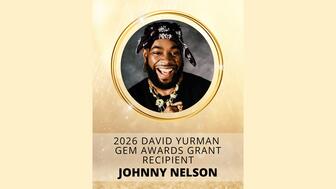
Nelson will be honored as the inaugural grant winner at the Gem Awards gala on March 13.

With refreshed branding, a new website, updated courses, and a pathway for growth, DCA is dedicated to supporting retail staff development.
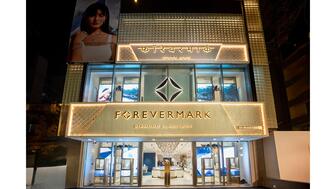
Experts from India weigh in the politics, policies, and market dynamics for diamantaires to monitor in 2026 and beyond.

The American precious metals refiner’s day-to-day operations remain the same post-acquisition.
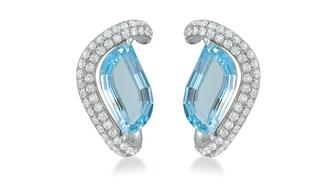
These aquamarine jewels channel the calming energy of the March birthstone.
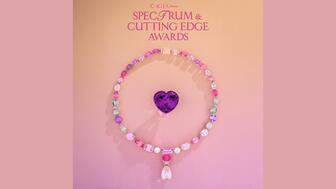
The “Innovative Design” category and award will debut in the Spectrum division of this year’s AGTA Spectrum & Cutting Edge Awards.

Consumers were somewhat less worried about the future, though concerns about rising prices and politics remained.

Foerster is this year’s Stanley Schechter Award recipient.

Sponsorships and tickets to the annual fundraising event, set for May 31, are available now.

Chicago police and members of the U.S. Marshals Service tracked down the 35-year-old suspect earlier this week in St. Louis.

Owners of the Ekapa Mine reportedly filed for liquidation about a week after a mudslide trapped five workers who have yet to be found.

A 10-year alliance has also begun to address the shortage of bench jewelers through scholarships, enhanced programs, and updated equipment.
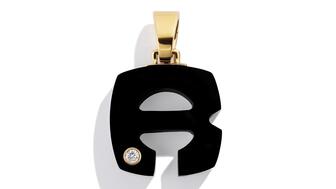
The “Splendente” collection has evolved to feature hardstone letter pendants, including our Piece of the Week, the onyx “R.”
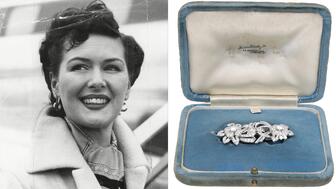
The jewelry collection belonged to “one of society's most glamorous and beautiful women of the mid-20th century,” said the auction house.

The update came as Anglo took its third write-down on the diamond miner and marketer, which lost more than $500 million in 2025.

Emmanuel Raheb discusses the rise of “GEO” and the importance of having well-written, quality content on your website.

Each received around four years for burglarizing a jewelry store and a coffee shop in Simi Valley, California, last May.

Catherine Aulick, a GIA graduate, received the ninth and final Gianmaria Buccellati Foundation Award for Excellence in Jewelry Design.

We asked a jewelry historian, designer, bridal director, and wedding expert what’s trending in engagement rings. Here’s what they said.

Are arm bands poised to make a comeback? Has red-carpet jewelry become boring? Find out on the second episode of the “My Next Question” podcast.
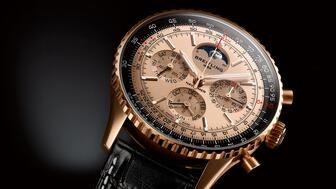
The Swiss watchmaker is battling declining sales amid a rapid retail expansion, according to a Financial Times report.





























